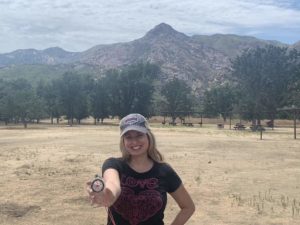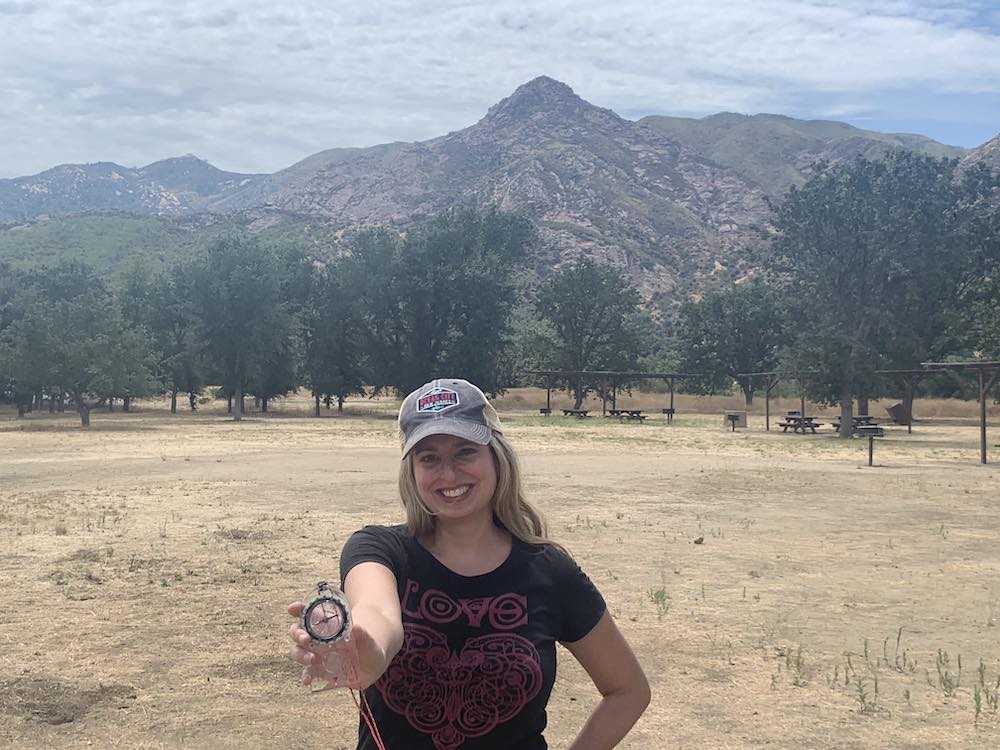
While you may still feel like a kid at heart, what about in the mind? Clients are always looking for the must-have secrets to better brain health. While high-quality nutrition is a MUST—other factors such as social engagement, physical activity, challenging your brain, and good sleep may also influence cognition. (1,2,3,4) The trick to protecting the brain is to keep it stimulated.
How to Keep Your Mind Sharp
Our brains are AMAZING. They have the ability to change, rewire, and improve with every new challenge or acquired skill—a process known as neuroplasticity. When trying an unfamiliar task, the working units of our brain, also known as neurons, create new pathways that get stronger as the skill gets reinforced! Neuroplasticity is the process of reorganizing these neural pathways and changing their connections. In other words, neurons change based on learned experiences throughout life. (5,6) When you try something new, you are exercising your brain to keep your mind sharp! So, your brain is reorganizing, whether it’s a new language, dance, or as simple as changing the directions to get back home.
Hey, movie buffs, have you ever wondered how kung fu masters trained with blindfolds to heighten their senses? It’s a unique way to further enhance a new neural pathway. Perhaps a more familiar example would be how athletes practice dribbling a basketball or soccer ball with their nondominant side. Remember, each unique experience that challenges us helps reshape neural pathways to help stimulate the brain. So, harnessing these processes can help to prevent cognitive decline. (7,8)
Encourage Neuroplasticity Through New Skills and Movement
Over time, people can improve their brain’s ability and health through different lifestyle choices. Raise your hand if you would rather not hear your doctor say, “you’re experiencing normal age-related cognitive decline.” Thanks, but no thanks! So, get your neurons firing with these helpful tips.
10 Top Tips to Keeping Your Mind Sharp
- Try something new and challenge yourself. Push yourself to go a little outside your comfort zone for the biggest brain gains.
- Choose a new skill that encourages a new social connection. Ignite a new passion. Host a hot game night and learn how to shuffle like a pro.
- Switch up your sweat sesh! Diversifying your movements or routine keeps your neurons firing fast and improves cognitive flexibility to exercise the brain.
- Embrace a new type of art, music, or dance. Try combining skills when possible—such as playing the drums while singing.
- Travel to new places and engage with different cultures and languages.
- Forge a new path to a familiar destination! Whether on foot, biking, or driving, it’s an easy way to promote a new neural pathway.
- Play a new video game. It’s shown to moderately enhance perceptual and cognitive functions in young and older individuals. (8)
- Make new friends! Talk about stimulating topics with people holding varying opinions to stimulate your brain.
- Throw, or kick, a ball around with your non-dominant hand or foot. Make it a fun game with the kids!
- Diversify your background music when performing tasks. (9)
While all of these are important, let’s dive into a few of the ones that can have a huge impact, like trying something new, playing a new game, or switching up your sweat sesh!
Learn a New Skill to Challenge Your Brain
Embracing a youthful disposition and growth mindset helps improve the brain by encouraging neuroplasticity! But don’t be fooled; this process can happen at any age. So, help prevent a cognitive rut by challenging your brain to learn new skills, let go of limiting beliefs, and embrace unfamiliar surroundings. In other words, keep the brain on its toes!
Try a New Recipe to Keep Your Mind Sharp
For the foodies, think of developing a new skill, such as making a challenging recipe. Of course, I’m talking macaroon, souffle, or puff pastry level difficulty. The first time you make, it can feel overwhelming, frustrating, and possibly be a disaster. But, as the saying goes, “practice makes perfect.” Over time, you may master your craft and end up with perfectly symmetrical and delicious macaroons—all thanks to new neural pathways.
My Neuroplasticity Story
Truth time! Those closest to me have witnessed my less-than-good sense of direction. But shrugging it off and going “it is what it is” doesn’t exactly align with my growth mindset. So instead, I stepped outside my comfort zone to better my brain by signing up for a topography class. Not only did I spend time outdoors, but I also learned how to read a compass, wander into nature, locate myself on a map, find my way back, calculate the distance between two mountains, and triangulate my position in the wilderness. Don’t get me wrong; I need additional practice to help the neural connections become stronger. But I would also totally get a badge if I were a Girl Scout.
If new classes aren’t your idea of fun, then learn how to keep your mind sharp with fun inside or outdoor games!

Outdoor Games to Test Your Brain
It’s playtime—for adults! After all, why should kids have all the fun? So, put down the tablet, phone, or remote and try something new! Reinvent your family bonding or date night by staying active or exploring new challenges. Not sure where to start? Try a cooking class, evening hike, painting party, dance session—or other new ways to create neural pathways. You may even discover a new passion! These brain stimulation activities are fun ways to be active and socialize!
- Ladder ball/toss—I love this game! You’ve got two balls attached to a string. Then, toss them and try to wrap around one of three ladders—the top earning the highest points. It’s an at-home rendition of kids throwing sneakers up a telephone pole wire. But you don’t lose a pair of shoes!
- Giant Hardwood Puzzle Game—This life-size game offers both bigger anticipation and tumble than the regular-size option. It involves taking one block from any tower level and replacing it on an incomplete level without causing the structure to topple.
- Disc Golf—We’ve had many Thanksgiving Day battles with this game. It involves two cans set up about 50 feet apart. Two teams alternate throwing and deflecting the disc with the goal of landing it in the can.
- Roundnet—You’re never too old to play ball! This game stimulates the reflexes as it centers around a net with a lot of spring! The player serves the ball down into the net, and the returning team has up to 3 hits to spike the ball back into the net.
- Table Tennis, Cornhole, and Badminton—need no explanation based on their popularity! These old-time favorites rev your neurons up! To create more of a brain challenge, hit, serve, or toss with your nondominant hand to fire up different pathways.
Remember, our brains continue to evolve with novelty. So, which new skill or game will you try this weekend? Keep reading for fun ideas to break a sweat while doing more for your brain!

Why Exercise is So Important to Keep Your Mind Sharp
It’s all about the gains—for the brain! While your muscles may get bigger from pumping iron, your brain also becomes more powerful. It’s all about doing different tasks and learning information that allows our brains to form new neural connections. Plus, research shows that cognitive functioning in older adults can be enhanced when music is combined with physical exercise. (7) So, turn on those tunes during your sweat sesh!
Brain-Derived Neutronic Factor
My clients often ask me, “how does exercise keep your brain sharp.” Well, research has clearly established that living an active lifestyle helps reduce the risk of cognitive decline with aging. Specifically, exercise helps increase brain-derived neurotrophic factor (BDNF)—a protein made in the brain that influences the growth of new neurons and neuronal plasticity. It also supports overall cognitive function, including memory and learning. (10)
While exercise can influence BDNF, so can certain foods and phytonutrients. In addition, learning new rules, movements, and fine motor skills is a form of #crossbraining—training your brain!
How I Diversify My Exercise
Despite working hard during exercise, the body will always attempt to find an easier way to move. Think about how larger muscles try to compensate when training weaker parts of the body. So, help encourage neuroplasticity by challenging the body to move in new ways. Work muscle groups differently. Change the pace of your cardio. Switch the order of your routine. There are tons of ways to stimulate new brain pathways! For more ideas, check out these fun ways to diversify your exercise routine.
- Ocean kayaking. This exercise involves big, flowing, multi-segmental movements of the whole body—engaging your core, back, and trunk. Plus, it helps with postural balance.
- Kundalini yoga. Switch up your usual yoga routine, allowing new sensory, motor, and affective experiences. Personally, I’ve gained cognitive flexibility with a new Kundalini video I’m using.
- Social hiking. Last year, I joined a hiking group to combine social connections and physical exercise. In addition, listening to the group’s stories and adventures led me to join various classes and other organizations that challenged my brain. Plus, I’ve met people with different points of view. Brain-changer!

Brain, Word, Card Games – a Type of Cognitive Exercise
One study found that the more often adults over 50 do word puzzles, the better their cognitive function! (11) So, challenge your brain and get your wordle on!
- Tile Word Games— online or in person, these games go from novice to extremely hard for levels and let you compete for victory while enriching your vocabulary.
- Word Searches—allow your brain to search for hidden words while playing solo or competing against friends.
- New card games—any new card game that offers a new set of rules is beneficial. My friends and family still get super competitive over a game of Spit—also known as Slam or Speed. This game requires counting, sequencing, and manual dexterity as you race until each player’s cards are gone! Don’t forget to try playing cards with your non-dominant hand.
Building stronger circuits in the brain is possible—at all ages! It’s never too late to adopt a lifestyle for better brain health. So, promote cognitive function by challenging yourself to new skills or movements while balancing a healthy diet. Don’t forget to also embrace your inner social butterfly to make positive connections with friends, family, or someone new! (12)
References
- Wei, Jingkai et al. “Sleep, sedentary activity, physical activity, and cognitive function among older adults: The National Health and Nutrition Examination Survey, 2011-2014.” Journal of science and medicine in sport vol. 24,2 (2021): 189-194. doi:10.1016/j.jsams.2020.09.013
- Mellow, Maddison L et al. “How are combinations of physical activity, sedentary behaviour and sleep related to cognitive function in older adults? A systematic review.” Experimental gerontology vol. 159 (2022): 111698. doi:10.1016/j.exger.2022.111698
- Morris, Martha Clare et al. “MIND diet slows cognitive decline with aging.” Alzheimer’s & dementia : the journal of the Alzheimer’s Association vol. 11,9 (2015): 1015-22. doi:10.1016/j.jalz.2015.04.011
- Dominguez, Ligia J et al. “Dietary Patterns and Cognitive Decline: key features for prevention.” Current pharmaceutical design vol. 25,22 (2019): 2428-2442. doi:10.2174/1381612825666190722110458
- de Sousa Fernandes, Matheus Santos et al. “Effects of Physical Exercise on Neuroplasticity and Brain Function: A Systematic Review in Human and Animal Studies.” Neural plasticity vol. 2020 8856621. 14 Dec. 2020, doi:10.1155/2020/8856621
- Innocenti, Giorgio M. “Defining neuroplasticity.” Handbook of clinical neurology vol. 184 (2022): 3-18. doi:10.1016/B978-0-12-819410-2.00001-1
- Shaffer J. Neuroplasticity and Clinical Practice: Building Brain Power for Health. Front Psychol. 2016 Jul 26;7:1118. doi: 10.3389/fpsyg.2016.01118. PMID: 27507957; PMCID: PMC4960264.
- Ballesteros S, Voelcker-Rehage C, Bherer L. Editorial: Cognitive and Brain Plasticity Induced by Physical Exercise, Cognitive Training, Video Games, and Combined Interventions. Front Hum Neurosci. 2018 May 7;12:169. doi: 10.3389/fnhum.2018.00169. PMID: 29867403; PMCID: PMC5949345.
- Bottiroli S, Rosi A, Russo R, Vecchi T, Cavallini E. The cognitive effects of listening to background music on older adults: processing speed improves with upbeat music, while memory seems to benefit from both upbeat and downbeat music. Front Aging Neurosci. 2014 Oct 15;6:284. doi: 10.3389/fnagi.2014.00284. PMID: 25360112; PMCID: PMC4197792.
- Ferris, Lee T et al. “The effect of acute exercise on serum brain-derived neurotrophic factor levels and cognitive function.” Medicine and science in sports and exercise vol. 39,4 (2007): 728-34. doi:10.1249/mss.0b013e31802f04c7
- Brooker, Helen et al. “An online investigation of the relationship between the frequency of word puzzle use and cognitive function in a large sample of older adults.” International journal of geriatric psychiatry vol. 34,7 (2019): 921-931. doi:10.1002/gps.5033
- Greenwood PM, Parasuraman R. Neuronal and cognitive plasticity: a neurocognitive framework for ameliorating cognitive aging. Front Aging Neurosci. 2010 Nov 29;2:150. doi: 10.3389/fnagi.2010.00150. PMID: 21151819; PMCID: PMC2999838.



